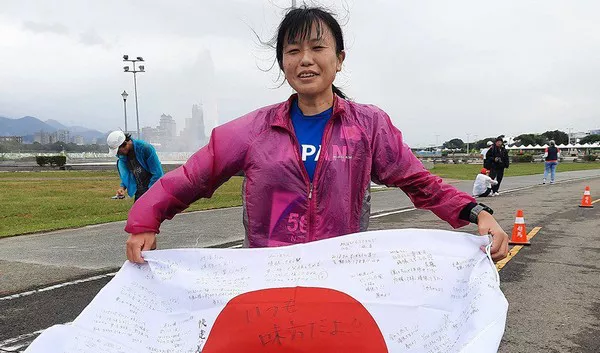Japanese ultramarathoner Miho Nakata has set a new world record for the longest distance covered in a 24-hour race by a female athlete. At the 14th IAU 24 Hour World Championship, Nakata ran an astounding 270.363 kilometers (167.995 miles), surpassing the previous record.
Nakata’s achievement equates to running slightly more than six full marathons within a single day. This record follows a series of notable performances in the past two decades, including those by Edit Berces in 2002, as well as athletes like Mami Kudo of Japan, Patrycja Bereznowska of Poland, and Camille Herron of the USA.
Initially, Nakata did not envision a career in competitive sports. “I played basketball during elementary and middle school, and joined a track and field club in high school. However, I didn’t pursue it seriously and stopped after a couple of months in university,” Nakata recounted.
Her journey into ultramarathoning began in 2021 during the COVID-19 pandemic, when traditional marathons were cancelled. A modest 200-km race in Okinawa presented an opportunity for Nakata to challenge herself. Despite a painful start and multiple walk breaks, Nakata’s dedication to training led to significant improvements and a growing passion for the sport.
Balancing her athletic pursuits with a job at the city council, Nakata trains primarily at night due to her aversion to early mornings. She typically logs 600-650 km per month, with substantial mileage accumulated on weekends.
On the day of her record-breaking run, Nakata faced several challenges, including a stomach bug and a recent injury from a fall. Despite these setbacks, her determination remained steadfast. Early in the race, she paced herself conservatively before eventually breaking away from the leading pack to establish her own rhythm.
By the midpoint of the race, many competitors had withdrawn, enhancing Nakata’s chances. She chose to maintain a steady pace rather than pushing too hard, allowing her to conserve energy for the latter stages. With a significant lead in the final hours, she focused on ensuring no competitors could overtake her.
As the race neared its end, Nakata learned from her coach that a final lap could secure the world record. “I gave everything I had left,” she said, surpassing the previous record by approximately 200 meters.
Post-race, Nakata initially struggled to grasp the magnitude of her achievement. The recognition from Guinness World Records and celebratory events helped her appreciate the significance of her accomplishment.
Nakata attributes her success to maintaining enjoyment in her training. “I focused on what I liked and avoided aspects I disliked,” she explained. “Finding ways to enjoy the process made it easier to stay committed.”
Her record not only highlights her exceptional endurance but also her ability to adapt and thrive in the demanding world of ultramarathon running.
You Might Be Interested In:


























